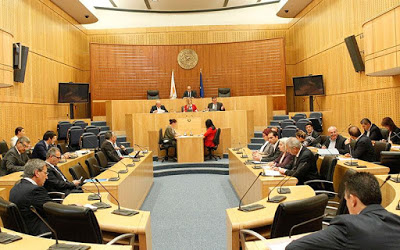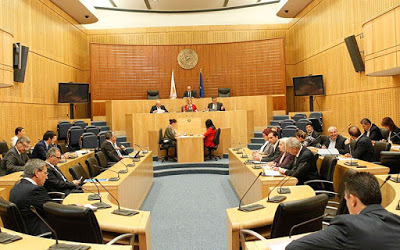The review of benefits enjoyed by the deputies was requested by the Auditor General, Odysseas Michailidis, for the purposes of equal treatment and equality. Calling on them, since in this case it is "these priests, these fathers", to harmonize these benefits they enjoy themselves, with what applies to the rest of the state machine, by amending the existing laws.
Our MPs are the only officials who receive their lump sum / tip from the State tax-free, as well as a pension from the age of 60.
According to the Auditor General, Odysseas Michailidis, the pension and gratuity of a member of parliament with one parliamentary term (60 months) amounts to € 1.352 per month and € 75.729 respectively, while for a member of parliament who has completed two parliamentary terms (120 months) the pension amounts to € 3.306 per month and the tip at € 185.115.
From the above it follows, according to Mr. Michailidis, that the Law on Pensions was drafted with heterogeneous criteria, with the result that a member of parliament with two terms enjoys more than double the retirement benefits compared to a member of parliament with one term.
It is noted that the above tip received by the deputies is not subject to the imposition of income tax, in contrast to the applicable to civil servants and employees of the wider public sector and the Local Government for whom, any lump sum or tip is earned by service from 1 / 1/2013 onwards, is subject to the imposition of income tax. In this case, the deputies excluded themselves when they voted in law the said memorandum bill.
In addition, the payment of the pension of the deputies starts from the 60th year of their age, meaning that they are no longer deputies or hold any other function or office in the Republic, and the tip is paid at the end of their term. The deputies were not subjected to any extension of the age of commencement of payment of their pension, as determined for civil servants by Law 216 (I) / 2012, for whom, now, the mandatory retirement age is the age of 65 at which the pension and the lump sum are paid without any proportional reduction.
"In view of the difficult fiscal conditions that our country is going through and for the purposes of applying the principles of equal treatment and equity, the benefits of MPs should be reviewed," said the Auditor General, so that the lump sum / tip they receive is further taxed. to extend the age of commencement of payment of their pension from the current age of 60 to the age of 65.
Abolish their pension
Especially for the pension that the deputies receive, the Auditor General in his annual report for the year 2015, which was published the day before yesterday, argues that it should be abolished and explains the reasons.
Based on a memorandum bill passed by the deputies, the new employees in the public and wider public sector who are hired from 1/1/2013 onwards, are not included in a government pension plan or similar, and therefore, will receive a pension only from the Social Insurance Fund.
"We are of the opinion that, especially since Members of Parliament are not prohibited from practicing any profession during their term of office, they should not receive a state pension," the Auditor-General said in his report, adding: "We emphasize at this point, that the inclusion of Members of Parliament in the Government Pension Plan in 1980 was due to the fact that civil servants enjoyed such a benefit. Therefore, in our opinion, now that this benefit has been terminated in the Public Service, it can not continue to be given to the deputies ".
In this regard, there is another distortion in favor of the Members of Parliament: No contribution is deducted from their remuneration to the Social Security Fund, because they are considered self-employed for the purposes of contributions to the Social Security Fund on the grounds that several Members of the profession are employed. There are, however, several MPs who do not practice, however, are still considered self-employed.
Another 32 recruitments to the parties in the backs of the State
The Auditor General also stigmatizes in his report the fact that, in the year 2016, the parties of the Parliament proceeded to 32 additional recruitments of parliamentary associates in the backs, of course, of the State. Recruitments, which are made by the parties themselves to cover both their own needs and those of their deputies, without criteria and announcement of positions, while their salary (Class A8) is covered by the State.
In particular, until 31/12/2015, the total number of parliamentary associates was 69.
At a meeting of party leaders in Parliament, held in September 2015, it was decided to increase the number of parliamentary associates by 18 and in January 2016, that is, two months before the dissolution of Parliament, the parties of the outgoing Parliament proceeded to recruit another 18 associates.
Then, at the request of the Speaker of Parliament, Dimitris Syllouris on 21/6/2016, the Minister of Finance approved, one month later, the granting of additional funds for the recruitment of another 14 parliamentary associates.
As a result, the number of parliamentary associates employed in Parliament on behalf of the parties and MPs increased to 101, with the State needing the amount of € 3,8 million per year to cover their salaries.
Source: Liberal

